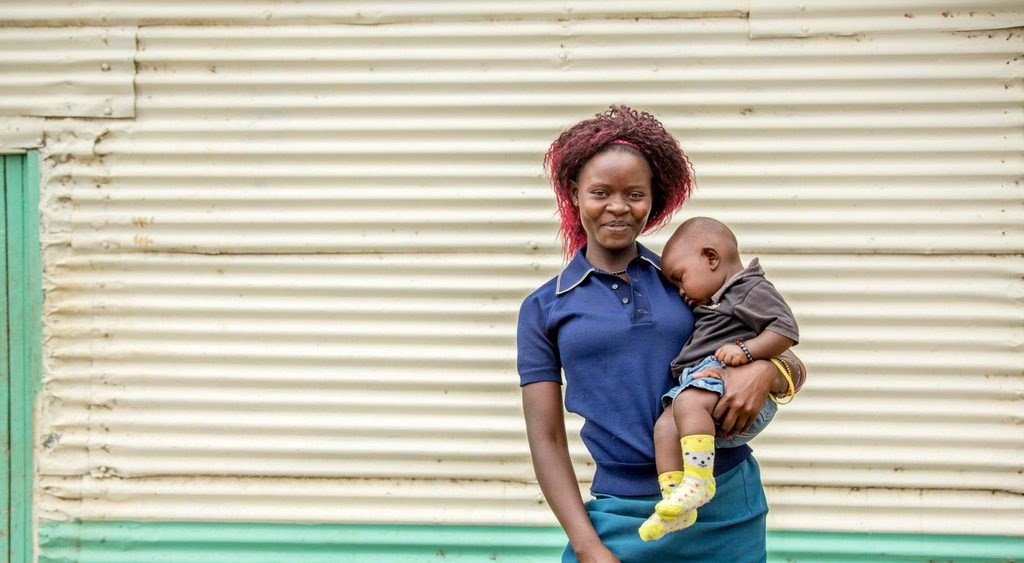4 NOVEMBER 2019
Girls have grown tired of patriarchal control of female sexuality and are demanding a say in discussions on their sexual and reproductive health and rights.

Girls’ and women’s sexual and reproductive health and rights are under attack in many parts of the world.
Despite progress on girls’ health and rights: child marriage, teen pregnancy, female genital mutilation (FGM) and gender-based violence still rob millions of girls around the world of their health, their futures and sometimes their lives.
Will the world keep its promises to girls?
Governments have promised to end child marriage by 2030, however, around 650 million girls and women alive today were married before their 18th birthday and the rate of progress is slow.
Girls should be given access to the places where decisions are made, so we can speak for the things that matter to us.
Efforts to end child marriage would need to be increased eight-fold to achieve this goal.*
Another unacceptable statistic: complications during pregnancy and childbirth are the leading cause of death for 15 to 19 year old girls globally.
At least 200 million girls and women alive today have been subjected to FGM and although there is an overall decline in the prevalence of FGM, the number of girls undergoing the practice is increasing due to population.
So how are we going to bring an end to these harmful practices?
Girls have some suggestions and they want leaders to listen.
1. Consult girls on political decisions that affect them.
“Girls should be given access to the places where decisions are made, so we can speak for the things that matter to us,” says Kadiatu from Sierra Leone.
“I fight for girls. It’s about time our government did too.”
2. Increase investment in education to tackle unwanted teenage pregnancy, child marriage and FGM.
“Governments should educate girls so they realise they won’t have any money if they get married too young and when their husband leaves them, they’ll have nothing,” says Georgina, 20.
“We want to see every girl supported to remain in school. If the government did this… it would fight child marriage, early pregnancy, FGM,” she adds.
3. Offer comprehensive education to inform young people about their bodies, sex, sexuality and relationships.
“In my school experience, girls and boys were not properly taught about consent, healthy sexual relationships or healthy attitude to sex,” says Alice from Australia.
“I want to see our government invest in relationships and consent training from kindergarten to grade 12 and into university spaces,” adds Libby, 20.
“We also need accountability from our schools and universities to handle these issues with respect and seriousness when they occur. Listen to survivors, believe them.”
4. Fund better and broader sexual and reproductive health and rights services.
“I want to see the government set up more safe spaces so girls who escape abusive relationships aren’t forced to mix with the guy in their local community,” says 22 year old Araffa from Kenya.
Governments must listen to girls
Regressive political forces around the world are trying to roll back the hard-won progress that has been made on sexual and reproductive rights in the 25 years since the landmark International Conference on Population and Development Programme of Action was agreed.
On its 25 year anniversary, governments at the International Conference on Population and Development in Nairobi this month must take a stand for girls’ rights and their futures.
They must listen to the girls whose lives will be affected by the political and financial decisions made this month.
For example, in 2016, 23 million adolescent girls and young women aged 15-19 in the developing world had an unmet need for contraception. Meeting this unmet need would reduce unintended pregnancies among this age-group by 6 million annually. *
That would mean averting 2.1 million unplanned births, 3.2 million abortions and 5,600 maternal deaths.
Consulting girls on these life-changing decisions could save lives. Governments in Nairobi must listen.
*Plan International is not responsible for the content of other sites.
Categories: Sexual and reproductive health and rights


